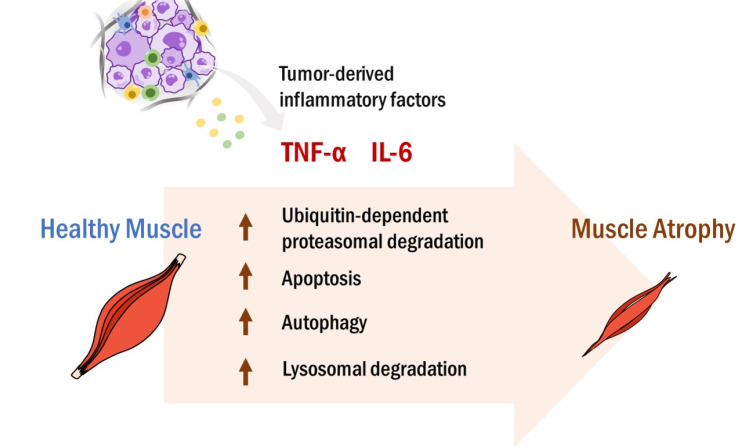Fig. 1.
Tumor-to-muscle effects. Tumor tissues constantly release various types of pro-inflammatory molecules into the bloodstream, maintaining the systemic and chronic inflammatory status. The circulating tumor-derived inflammatory factors, such as IL-6 and TNF-α, promote skeletal muscle atrophy through activating ubiquitin-dependent proteasomal degradation, apoptosis, autophagy, and/or lysosomal degradation. Loss of skeletal muscle is closely associated with poor survival in cancer patients.

